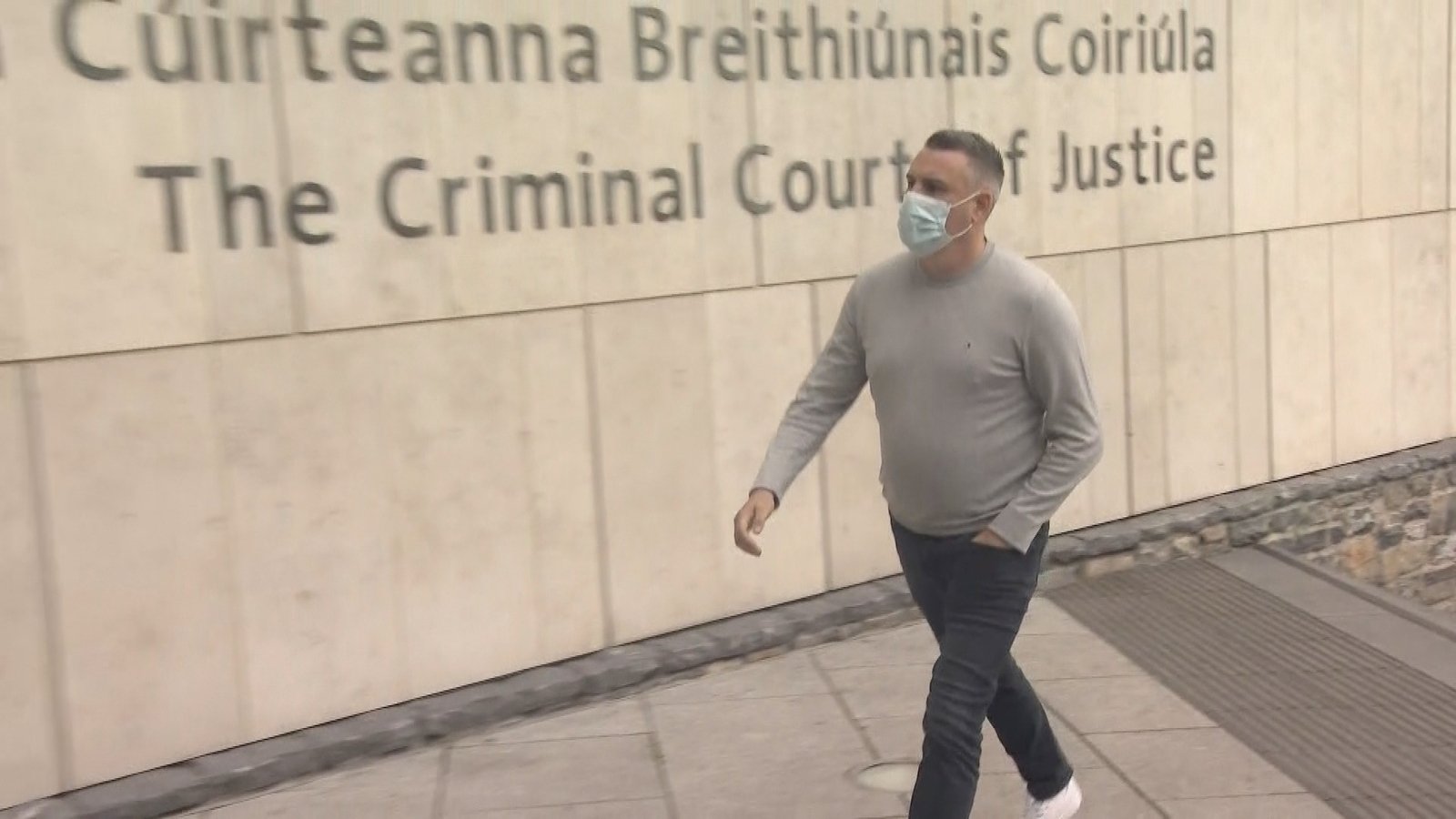World
Former Real IRA member jailed for failing to pay taxes

Former Real IRA man Nathan Kinsella has been jailed for one year for failing to pay taxes on hundreds of thousands of euros he claims he was “gifted” by a millionaire friend while on unemployment benefits.
Kinsella has previously told gardaí that the money was not “dodgy” and that he “didn’t see an issue” with someone giving him large amounts of cash, even though Kinsella said he did not work for the millionaire.
Jailing him at the Special Criminal Court, Mr Justice Michael MacGrath said the court has “concerns” about the explanations Kinsella gave of receiving money from a wealthy friend.
The judge also noted that Kinsella has a previous conviction for IRA membership and said the sums involved in this case, totalling €230,000, put it in the upper mid-range for seriousness.
The judge set a headline sentence of 40 months imprisonment but gave Kinsella the maximum one-third reduction for the fact that he pleaded guilty at the earliest opportunity.
He further reduced the sentence after considering Kinsella’s health difficulties that were outlined in a number of medical reports handed into the court.
The final sentence imposed is one of 18 months with the final six months suspended for two years. The court agreed to defer the sentence to allow Kinsella’s doctors to liaise with prison medical staff to ensure that he has access to medication while in prison.
Kinsella undertook to present himself at Portlaoise Prison next Wednesday.
The 45-year-old, of Richmond in Blackrock, Co Dublin, entered three guilty pleas on tax offences at a November sitting of the three-judge, non-jury Special Criminal Court.
At another hearing earlier this year, Dominic McGinn SC for the Director of Public Prosecutions (DPP), said the guilty pleas related to failures to pay Capital Acquisitions Tax (CAT) for the years 2018, 2019 and 2020.
Mr McGinn said that during the period under investigation a total of €230,000 had been lodged into the three accounts, two controlled by Kinsella’s partner and one by Kinsella himself. Kinsella admitted to gardaí he had no taxable income for that period and had been on unemployment payments.
Kinsella told gardaí in voluntary interviews that he had lived with a friend, a multi-millionaire, who would loan or gift money to him.
Mr Justice MacGrath noted that Kinsella told gardaí he lived with this man from 2016 to 2019, that he did not pay rent and when he needed money, he would ask for it and his friend would provide it.
The court heard that when asked about specific amounts transferred into the three accounts, Kinsella said they had been received by him and then lodged by his partner, Jennifer Dunne.
Kinsella told gardaí he believed that there was nothing illegal about the lodgments.
‘No dodgy money’ involved
Mr McGinn told the court that Kinsella told gardaí that there was “no dodgy money” involved in the lodgments, that the accused “didn’t see an issue with it” and that a man gave him money on multiple occasions but that Kinsella did not work for him.
He said the cash had since been spent.
Kinsella had 17 previous convictions, 14 for road traffic offences and two for impeding a prosecution. He was jailed by the Special Criminal Court ten years ago after a garda investigation into paramilitary activity at the funeral of dissident republican Alan Ryan.
The defendant had pleaded guilty to membership of an unlawful organisation styling itself the Irish Republican Army, otherwise Óglaigh na hÉireann, otherwise the IRA on 13 September 2012 and was sentenced to two years.
The charges that Kinsella pleaded guilty to are that he failed without reasonable excuse to deliver to the Revenue Commissioners a full and true return for the purposes of capital acquisitions tax as required by section 46(2) of the Capital Acquisitions Tax Consolidation Act 2003 on or before 31 October 2018.
He further pleaded guilty to two additional counts of the same offence on or before 31 October 2019, whilst having an address in Dublin, and on or before 31 October 2020, whilst having an address at Richmond, Newtownpark, Blackrock, Co Dublin.
Money laundering charges that had been filed against Kinsella have now been dropped.
In November, the State dropped money-laundering and tax charges against Jennifer Dunne who had also been due to stand trial at the Special Criminal Court.
Ms Dunne, 38, of Richmond, Blackrock, Co Dublin, had been accused of six money-laundering offences relating to three AIB accounts between 1 January 2018, and 31 December 2019, and a further three counts of failing to furnish tax returns between 31 October 2018 and 31 October 2020.
Mr McGinn told the court that certain documents had now been received by the State and that all nine charges against Ms Dunne were no longer being pursued by the DPP.
Ms Dunne had been charged with six counts of money laundering offences under Section 7 of Criminal Justice (Money Laundering & Terrorist Financing) Act, 2010.
She had been charged with converting, transferring, handling, acquiring, possessing or using property, namely funds lodged to an AIB account on dates between 1 January 2018, and 31 December 2019, within the State, knowing or believing or being reckless as to whether the property was the proceeds of criminal conduct.
She had also been charged with failing without reasonable excuse to deliver to the Revenue Commissioners a full and true return for the purposes of capital acquisitions tax as required by section 46 (2) of the Capital Acquisitions Tax Consolidation Act 2003 between 31 October 2018, and October 2020.










